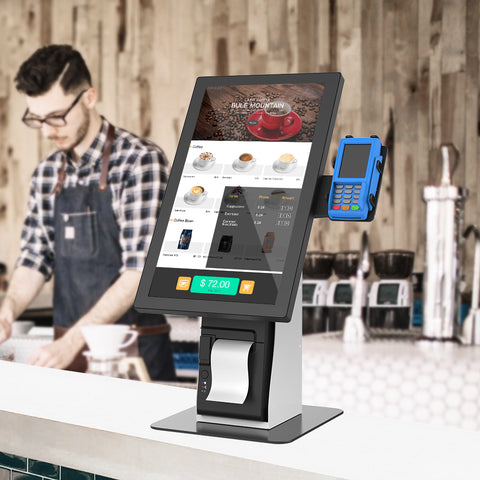Tip inflation "Tipflation"! Even self-service checkout kiosk require tips.
According to the British "Mirror" report, a woman bought a bottle of bottled coffee at a convenience store. In order to avoid queuing, she chose a self-checkout. But after scanning the goods, she was surprised to find that the self-service checkout machine asked her for a tip, offering three options of 15%, 18%, and 20%. The woman posted her experience on Reddit, writing: "The self-checkout requires a tip."

After this post was published, it aroused the attention of netizens from many countries. Most netizens expressed shock at the requirement to "humanize" self-service checkout machines, and some began to think about the economic truth behind tipping culture.
Does tipping lead to better service?
In the United States, tipping seems to be a "natural" thing. When dining in a restaurant, you need to pay a tip of at least 10% or 15%. Three years after the epidemic, people suddenly realized that tips have quietly increased to 18% or 20%. Maybe you think it's okay to tip the waiters in restaurants and hotels. After all, people make money through labor, and if the waiters don't look good, you won't feel good either. Some netizens have encountered this situation. When staying in a hotel, they forgot to leave a tip when they got up in the morning. When they returned to the room at night, the hotel attendant made it clear: I have been to your room, but I will not clean it for you! Because you didn't leave a tip.
This confirms that tipping is an incentive for good service and helps create a balance between customer and waiter. As a service worker, if you do things better when possible, you will get more tips. Then, there is motivation to get things done. As a customer, you can also enjoy more "high-quality" services.

What economic problems are hidden behind tipping culture?
Tipping is important and Americans take it very seriously. After all, many service industry workers still earn minimum wage and rely on tips for their income. However, this deep-rooted culture is getting out of control. For example, takeaways and supermarkets are joining the ranks of accepting tips. Customers enter the supermarket to make their own purchases and pay with their credit cards. Finally, the waiter hands you a bag and takes a tip! Some netizens said: "I feel that I am too rich, and I don't want the number in my account to exceed two digits.", "In this case, I also want to give myself a tip."
What's more, the self-service checkout machines, which have no human service throughout the entire process, have begun to require customers to pay tips, and only allow a fixed tip ratio to be chosen, which is simply mandatory. This has caused huge controversy, most of which is negative. "Should I tip the machine?" "If I settle the bill myself without the help of staff, I should lower the price." etc.
Discussions on the topic of "tips" are still ongoing.
Some people believe that this is a move by employers to pass on part of their employees' wages to customers. Do you think this way of shifting operating costs by employers is sustainable? How to more reasonably balance the rights and interests of customers and the income of waiters? Going further, you can talk about the reform of the wage system, the guarantee system for the basic living standards of waiters, etc. All of this is worthy of politicians and entrepreneurs thinking carefully and making changes. Whether it is service staff who rely on tips to improve their lives, or consumers who are forced to pay tips, they are all looking forward to better solutions.
